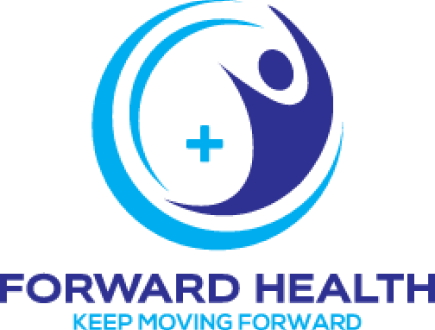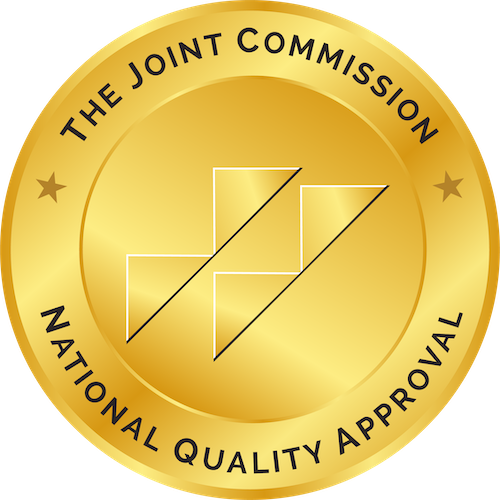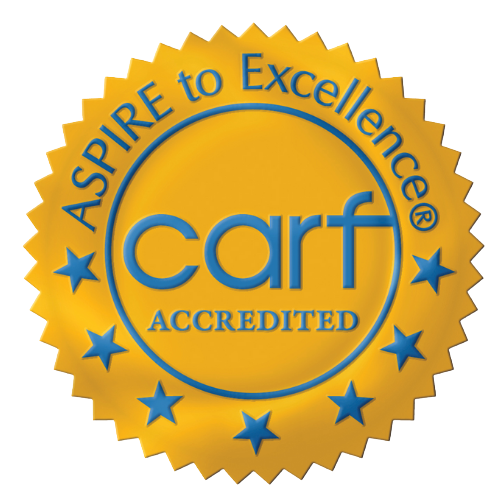Is drug addiction taking over your life?
Drug addiction is a serious issue that affects thousands of people in Ohio and almost fifty million across the United States. It can tear apart families, damage health, and make daily life feel impossible – getting help with drug addiction, though, can lead to sustainable recovery.
Understanding what addiction is, how it starts, and where to find support is the first step to overcoming this chronic but treatable condition. This guide to drugs and addiction walks you through the causes of addiction to drugs, the signs to watch for, and the treatment options available in Ohio.
What is a Drug Addiction?
Drug addiction definition: a condition where a person becomes unable to stop using a substance, even when it causes harm, described clinically as substance use disorder.
Ongoing use of drugs can cause tolerance to develop, meaning more of the drug is required to deliver the initial effects. Over time, this leads to physical dependence and withdrawal symptoms upon quitting. Dependence often leads to addiction.
Addiction affects how the brain works, especially the areas that deal with decision-making, behavior, and emotions. People with drug addictions may feel like they need the substance to feel normal or to cope with stress. This makes it hard to quit, even when they know the drug is hurting them or their loved ones.
Drugs like prescription painkillers, heroin, cocaine, and meth can all lead to addiction. While some people start using drugs for fun or to relax, the habit can quickly take over their lives. Addiction is a progressive condition that benefits from timely intervention.
What Causes a Drug Addiction?
There isn’t one single cause of drug addiction. It often happens because of a mix of factors, and each person’s situation is different. The three main causes are environment, genetics, and mental health. Some people are more likely to develop an addiction due to their surroundings, while others may be more at risk because of their family history or mental health struggles.
Environment
The environment a person grows up in plays a major role in whether or not they develop a drug addiction. People who are around drug use in their homes, schools, or communities are more likely to experiment with drugs themselves. Peer pressure, especially among teens, can trigger someone to try drugs out of curiosity or a desire to fit in. When drug use is common or normalized, it’s easier for someone to start using drugs without fully realizing the risks.
Family life also has a huge impact. Children who grow up in unstable homes, or whose parents struggle with addiction, are at greater risk of using drugs themselves. A lack of support, love, or guidance can push young people toward unhealthy coping mechanisms, like drug use, to deal with stress, loneliness, or trauma. Strong family ties and a stable environment, by contrast, can help protect against addiction.
Genetics
A person’s genes can also make them more likely to develop an addiction. Research shows that addiction often runs in families. If someone has a parent or close relative with a history of drug or alcohol abuse, they are more likely to struggle with addiction too. This doesn’t mean everyone with a family history will become addicted, but it does raise the risk.
Scientists believe certain genes may affect how a person’s brain reacts to drugs, making them more sensitive to the high delivered by addictive substances. These genetic factors can influence how quickly someone becomes addicted and how difficult it is for them to stop once they start using – roughly half of someone’s risk profile for addiction is genetic.
Mental Health
Mental health also influences addiction. People with conditions like depression, anxiety, or trauma often turn to drugs as a way to cope with their emotional pain. Drugs can offer temporary relief from overwhelming feelings, but they make the problem worse in the long run. Using drugs as a way to escape mental health struggles often leads to addiction, as the person becomes reliant on the substance to feel better.
When someone is dealing with both a mental health disorder and addiction, it’s called a dual diagnosis or co-occurring disorder. In these cases, treating both the addiction and the mental health issue together is the most effective route to recovery. Untreated mental health conditions can push someone back toward drug use, even if they’ve tried to quit.
Common Drugs of Abuse
There are many drugs that people commonly misuse, leading to addiction. These drugs fall into different categories, each affecting the body and mind differently.
Some people begin using drugs recreationally, while others may be prescribed medications but end up misusing them. Over time, what might start as casual or necessary use can develop into a dangerous addiction.
Some of the most addictive drugs are prescription drugs, cocaine, methamphetamine, and heroin.
Prescription Drugs
Prescription drugs are medications that doctors prescribe to treat specific health problems. While they are meant to help people when used correctly, they can be dangerous if misused. The most commonly abused prescription drugs include opioid painkillers, sedatives, and stimulants.
- Opioid painkillers: These are pain-relief medications like oxycodone, hydrocodone, and fentanyl. Opioids work by blocking pain signals in the brain, which can also create a feeling of euphoria or relaxation. Because of this, people might misuse them to feel good or escape stress. Unfortunately, opioids are highly addictive. Regular use can cause the body to build tolerance, meaning higher doses are needed to feel the same effects. This often leads to dependence, overdose, and even death.
- Sedatives: Medications like benzodiazepines – Xanax, Klonopin, and Valium – are prescribed to treat anxiety or insomnia. However, using them for a long time or taking more than prescribed can lead to addiction. These drugs slow down brain function, causing relaxation. But over time, people may find it hard to function without them, leading to dependence and addiction.
- Stimulants: Drugs like Adderall and Ritalin are prescribed for ADHD (attention-deficit hyperactivity disorder) and narcolepsy. They help people focus and stay awake. When taken by someone without these conditions, or in higher doses than prescribed, they can be misused for the burst of energy and focus they provide. This misuse can lead to addiction, as the brain becomes reliant on the drugs for that extra boost.
Cocaine
Cocaine is a powerful illicit stimulant drug that delivers a quick, intense feeling of energy and euphoria. It’s often sold as a white powder, which is snorted, smoked, or injected. Cocaine increases levels of dopamine in the brain. Dopamine is the chemical responsible for pleasure. However, the high from cocaine is short-lived, often lasting only 15 to 30 minutes. This leads people to take more of the drug in a short period, trying to maintain the high.
Repeated use of cocaine can cause severe physical and mental health problems. People may experience heart attacks, strokes, or seizures. Cocaine can also lead to paranoia, anxiety, and aggressive behavior. The drug is highly addictive because the brain quickly adjusts to its effects, making people crave more and more to feel the same rush. Over time, this can lead to severe addiction, damaging relationships, careers, and overall health.
Methamphetamine
Methamphetamine – meth – is a Schedule II stimulant drug that affects the CNS (central nervous system). Meth is usually found as a crystal-like substance that is smoked, snorted, injected, or swallowed. The drug produces an intense high that can last for hours, giving people a false sense of energy and confidence.
Meth is highly addictive because it floods the brain with dopamine, creating feelings of intense pleasure. With continued use, the brain becomes less able to produce dopamine naturally, leaving the person feeling depressed or anxious without the drug.
Long-term meth use can cause serious physical and mental health problems. It can lead to extreme weight loss, tooth decay – meth mouth – skin sores, and heart problems. Mentally, people who abuse meth may often experience paranoia, hallucinations, and violent behavior.
Heroin
Heroin is an opioid drug made from morphine, a substance found in the seed pod of some opium poppy plants. When injected, smoked, or snorted, heroin quickly enters the brain, producing a rush of euphoria. Heroin is one of the most addictive substances.
Like prescription opioids, heroin binds to opioid receptors in the brain, blocking pain and creating intense pleasure. This high is short-lived, causing people to take more heroin frequently to maintain the feeling. As a person continues to use heroin, they build tolerance, needing more of the drug to get the same effect. This increases the risk of overdose, which can lead to slowed breathing, coma, or death.
Heroin use has devastating effects on the body. It can lead to collapsed veins, infections in the heart, liver disease, and lung complications. For those injecting heroin, there is also a risk of contracting diseases like HIV or hepatitis from sharing needles.
Recognizing the Signs of a Drug Addiction
One of the early steps in overcoming drug addiction is recognizing when someone is struggling. Addiction can develop gradually, and the signs may not always be obvious at first. Knowing what to look for can help identify when a loved one – or even yourself – might need help.
Early Signs
Drug addiction often begins with subtle changes that can quickly spiral into serious issues. Here are some key early signs of addiction and more severe behaviors that indicate professional help is needed.
- Increased use: Someone starts using drugs more frequently, such as moving from occasional use at social events to using drugs regularly, even alone.
- Ignoring responsibilities: Missing work, school, or neglecting important tasks at home as drug use takes priority.
- Mood changes: Sudden irritability, anger, or becoming distant from friends and family.
- Financial struggles: Unexplained money issues, borrowing, or selling personal items to fund their habit.
- Secrecy about use: Hiding or lying about their drug use or sneaking around to avoid being caught.
These signs may seem small but can signal the beginning of a deeper problem. Spotting them early can help prevent addiction from worsening.
Signs to Get Help
As addiction takes hold, the signs become more obvious and harder to ignore. These behaviors indicate that someone is no longer in control of their drug use and needs professional help to recover:
- Loss of control: Being unable to stop using drugs despite wanting to quit, often after multiple failed attempts.
- Health decline: Physical signs like frequent illness, weight loss, poor hygiene, or unexplained injuries.
- Risky behavior: Engaging in dangerous activities like driving under the influence or illegal actions to obtain drugs.
- Withdrawal symptoms: Nausea, shaking, anxiety, and other symptoms when trying to quit.
- Relationship problems: Ongoing conflicts with family and friends, leading to isolation.
- Higher drug tolerance: Needing more of the drug to feel the same effects, increasing the risk of overdose.
When these severe signs appear, seek help immediately. Recognizing the signs early on and getting the right treatment can save a life and improve the chances of successful recovery.
How to Get Help for a Drug Addiction
Recognizing a drug addiction is just the first step. The next and most important step is getting help for drug addiction. Many people feel overwhelmed when they realize they need help, but there are plenty of resources available. Whether through medical professionals, support groups, or rehab programs offering drug addiction therapy, help is out there for those who seek it.
Professional Treatment for Drug Addiction
The most effective way to overcome addiction is through professional treatment. Drug addiction affects both the body and the mind, so treatment programs focus on whole-body healing. This often involves a combination of medical care, therapy, and support groups to give people the tools to stay sober.
In most cases, professional treatment starts with detox, where the body clears out the drugs. This process can be tough, as withdrawal symptoms can be painful and challenging. That’s why detox is usually done in a medical setting where doctors can help manage the symptoms and keep people safe. After detox, the person moves into therapy, where they begin working on the mental and emotional aspects of their addiction.
Treatment can be done in different settings, depending on what the person needs and the severity of their addiction.
- Inpatient rehab: This is where the person stays at a facility full-time. Inpatient rehab provides 24/7 care, a structured environment, and a chance to fully focus on recovery without outside distractions. People with severe addictions and co-occurring disorders often benefit from inpatient treatment.
- Outpatient treatment: This option allows the person to live at home while attending therapy and counseling sessions during the week. Outpatient treatment works well for those with a strong support system at home and milder addictions.
The key to professional treatment is finding the right program. Different approaches work for different people, and the best programs are those that are personalized to fit each person’s needs.
Therapy
Therapy is a core component of drug addiction treatment. It helps people understand why they turned to drugs in the first place and teaches them how to avoid falling back into old habits. There are different types of therapy, but they all focus on changing negative behaviors and building healthier ways to cope with life’s challenges.
- CBT: CBT (cognitive behavioral therapy is proven effective for treating drug addiction. CBT helps people recognize the harmful thoughts and behaviors that led to their drug use. The therapist works with the person to replace those negative patterns with positive, healthier habits. CBT also teaches coping skills to deal with stress, anxiety, and triggers that might lead to relapse.
- Group therapy: Most rehab programs include group therapy sessions where people share their experiences with others going through similar struggles. Group therapy helps people feel less alone and gives them a sense of community. It’s also a great way to learn from others who have found ways to stay sober.
- Family therapy: Addiction doesn’t just affect the person using drugs – it affects their whole family. Family therapy brings loved ones into the healing process, helping rebuild trust and communication. It also provides family members with the support they need to better understand addiction and how they can help their loved one.
Therapy helps address the root causes of addiction, which is central to meaningful, long-term recovery. Without treating the emotional and psychological issues behind drug use, it’s much harder for someone to remain abstinent long-term.
Alumni Community
One of the strongest supports for recovery is being part of an alumni community. Many rehab centers offer alumni programs that help people stay connected with others who have completed treatment. This community provides ongoing support, encouragement, and accountability.
Staying involved with an alumni community gives individuals in recovery a network of people who understand what they’re going through from firsthand experience. These connections help reduce feelings of isolation and can serve as a reminder of how far they’ve come. Alumni often attend regular meetings, participate in group activities, and stay in touch with friends they made during treatment.
The alumni community helps build long-term sobriety by providing a sense of belonging and shared purpose. It keeps people grounded in their recovery journey and encourages them to give back by supporting others who are just beginning their path to recovery.
Aftercare Support
Recovery doesn’t stop once someone completes treatment. Staying sober is a lifelong process that requires continued effort and support. Aftercare programs are designed to provide ongoing care after formal treatment ends, ensuring that people have the resources they need to maintain their sobriety.
Aftercare can include:
- Counseling: Many people continue therapy after leaving rehab to help them stay focused on their goals. Ongoing counseling sessions allow individuals to work through any challenges they face in daily life, whether it’s stress, relationships, or the temptation to use drugs again.
- Support groups: Groups like NA (Narcotics Anonymous) or SMART Recovery offer peer support for those in recovery. These groups provide a safe space to share experiences, struggles, and victories. Regularly attending meetings helps people stay accountable and connected to a recovery-focused community.
- Sober living homes: For some people, going straight back to normal life after rehab can feel overwhelming. Sober living homes provide a drug-free environment where individuals can live while adjusting to life outside of treatment. These homes offer structure and support while encouraging independence and personal growth.
Aftercare gives people the continued guidance and encouragement they need to keep moving forward, even when life gets tough. With the right aftercare support, individuals can build a stable, healthy life free from drugs.
Drug Addiction Treatment at Forward Health Ohio
Choosing to begin recovery is a life-changing decision, and at Forward Health in Groveport, Ohio, we’re here to support you every step of the way. Our experienced team, personalized care, and commitment to your success provide the tools and guidance for lasting recovery.
Take the first step toward a healthier, happier future by contacting us today – we’re ready to help you reclaim your life one day at a time. Call (614) 324-8669.




